The Great Displacement
and sisterhood of the unraveling past
For my daughter's 32nd birthday, I talk about the dispersal of her friends out of California for houses, displacing those who left their own hometowns to find jobs. I feminize my historical and Biblical analysis by telling the stories behind the statistics, including ‘In Memory of My Best Friend Jumana’ by Ghaydaa Owaidah. From my book, How to Dismantle an Empire, I explain why we are all precariots, as the Greeks termed themselves under IMF austerity. And how community is being killed by a thousand contactless cuts. I quote Mary McLaughlin on metamorphosis and Kathleen Devanney on writing our own SOTU.
the sisterhood of the unraveling past
At my daughter’s 32nd birthday this past weekend, a call was answered for a gathering of her tribe. It was remarked that a surprising number arrived sans partners. The joke in HS had been that Veronica had many sister-wives—not just friendships but deep enduring kinship bonds built over conversations that went on and on. Never assign Veronica to bring the appetizers because she may be listening to someone she just can’t interrupt.
I’ve know these women from Veronica’s daycare or middle school or gap year. They’ve become my bonus daughters, especially the ones in need of a mother. I’ve known them through eating disorders and family dysfunctions and strings of shitty boyfriends. I knew them before the invention of cell phones—imagine that. I’ve known one before she was sent to a wilderness camp in the mountains of Utah mid-winter, never to return until she was an adult. That still breaks my heart.
Not one still lives in Santa Cruz, and not from choice. They miss it desperately and would move back in a heartbeat. The one first taken by force was taken again by a job offer her spouse couldn’t refuse. Along with the lure of jobs is the ability to take responsibility for a house, impossibly out of reach in Santa Cruz for the most rundown fixxer-upper. Against their will, these young people drive up prices in places other young people have left for lack of jobs. It’s the Great Displacement.
Thank you, as always, to my soul-sister Amy for these breathtaking AI illustrations.
the futility of fertility
Of this scattered tribe, only one has or intends to have kids with her partner in agreement. There is a dilemma: those whose mortgages depend on their own income can’t afford to interrupt their careers. Those dependent on their spouse’s income aren’t ready to sign up for a lifetime of dependence. And the reluctance is emotional—those conflicted by their own mothers don’t want to pass that on to the next.
My generation was the first where women were expected to have a job, and that became an imperative with the two-income mortgage. I never noticed the similarity between imperative and imperial but it’s hard to miss once you see it. As I’ve often expressed, a true liberation would have gone the other way, allowing the labor of men to serve the family and community instead of both genders making profits for the rich. That’s what the economic plan does in my book, How to Dismantle an Empire.
I spent the entire weekend talking about relationships, which are the domain of women. The heart of mothering is fairness within differences. A mother loves her children equally, which doesn’t mean treating them all the same. It’s also the essence of economics, governance, religion and culture—an appreciation of the utterly unique miracle of the particular applied in theory to the universal.
Taking a feminine approach to these masculine topics means asking “How does this affect the dynamics between people?” Applying the true masculine is using logic and abstraction to design policies that implement these principles. Both are available to anyone using both sides of their brain. Toxic masculinity is hierarchical power, which means superiority and systems designed to enhance it.
feminizing the statistics
In the last episode, I talked about the foreign Hyksos infiltrating the court of ancient Egypt and becoming ruthless rulers. A feminine approach might have told the story from the perspective of two Egyptian families, one in the court and one a peasant farmer, perhaps as Julius Skoolafish has done with the Bolsheviks and the Romanovs. It could show how both were betrayed by the trick of confiscating the grain for ‘safekeeping’ and then being used to confiscate the land.
Or I could describe one family in Byblos, the world’s oldest city, before it was attacked by the Habiru. I could show the stability of their lives, their love for the sea, and the olive groves and cedar trees they traded for Egyptian goods. You could smell their roasting lamb, the spices they mixed with the garlic and lemon. You would know the names of their children, which one was shy and which one played jokes.
And when the Habiru put them under siege, you would feel their hunger and fear. You’d shiver at the whispers of what had been done to other cities. When the children were thought asleep, you’d hear the hushed debate over whether to give in and kill your own leaders to have peace. Did you really owe them loyalty? Would what came next be far, far worse?
Those relationships would feminize the statistics, tell the intimate stories like this one does, published by Mark Elsis in Earth Newspaper. In Memory of My Best Friend Jumana, Ghaydaa Owaidah writes:
Jumana, or Jeeji, as I used to call her, was her mother’s best friend, her father’s only daughter, and my heart’s delight.
She knew all the details and secrets of my days. She was the only one who knew my unrealistic dreams and encouraged me to pursue them. She answered all my silly questions with illogical answers. She was the best at understanding my glances.
She was everything. Now I have nothing.
I lost Jeeji on April 11. After the first cry, I became silent and remained so for many days, unable to comprehend my great loss.
Jeeji and her parents were killed when an Israeli missile hit a crowded market. There was no body left to bury.
Jeeji will have no grave. In Gaza, finding a grave for your loved one is a luxury. You are lucky if you find their whole bodies.
I don’t want to remember how Jeeji died. My memories of our conversations and time together and our photos are making me die slowly. I have aged quickly since her death.
Jeeji was the best face to see every day at university, though she often missed classes, which made me angry. She didn’t like waking up early, but our time together made up for what we didn’t like.
We would sit in our favorite place, first talking about lectures, then everything else. I loved bringing her a falafel sandwich, her favorite. We would eat, laugh, and take a lot of photographs. …
The world no longer means anything to me, and I no longer care about the end.
I am not the only one to lose a dear friend. I had often wondered how those who lose their best friends find the strength to continue. Now, I understand.
Jeeji will forever remain in my heart, my writings, my speeches, and my prayers. She didn’t die; she will live on through me. I will speak of her until my last breath, ensuring the world knows that our martyrs are not just numbers.
They were human, with dreams and lives.
we are all precariots
My daughters and their friends illustrate the problem that my economic plan addresses. Their lives are good and they’re all succeeding. They have nothing to complain about, especially in comparison. Yet every one is hanging by a thread—financially, physically, emotionally. One setback—a downturn in the economy, an uptick in variable interest rates, a health crisis—and they could lose everything. There’s no safety net of friends and family close by, ready to help out.
When the Greeks were put under austerity measures by the IMF, they had a word for it: precariots. They weren’t fully unemployed. They weren’t starving or homeless. But they were all on the edge, constantly. Their lives were precarious and could be snatched from them at any time, for any reason. One misstep or circumstances beyond their control. Any control they had was tenuous.
Every one of my daughters and their friends are living highly stressful life, stretched to capacity to make the rent or mortgage. The community my daughter had from daycare or even before, counting sisters and parents, is dispersed, scattered. And she's finally admitted her grief over it, and the feeling that they deserted her—for reasons she can't be reasonably mad about, like having a job or house. She has survivor’s guilt for staying.
This is the automated version of conquest. Death by a thousand contactless cuts.
the kind word revolution
My youngest daughter and I were sharing a hotel room with one of my favorite bonus daughters. Before we fell asleep, my daughter told the friend—who’d moved away—to go to every little restaurant and shop around her and chat them up. She said her boyfriend had a favorite candy store and went in all the time for little purchases. The owner knew him, knew they’d just moved, and would ask him questions. It wasn’t just candy he was there for, but community.
That night I had a dream that I tried to start a revolution over soft serve ice cream. I went up to the counter in a large mall to place an order. But a woman in a blue mask and shower cap said we’d missed our reservation. “Why do I need a reservation to get ice cream?” I asked, but she shook her head.
Halfway out I stopped and said, “I’ll tell you why. They don’t want us talking to each other in line. They don’t want us talking to you. They don’t want us to know your name, or recognize your face, or have conversations, or make jokes. They want us to order ice cream from a machine and have a robot hand it to us.”
But you can thwart them. Every time you say a kind word to a stranger, it starts a revolution.
hot slop of potential
Mary McLaughlin wrote about metamorphosis, apologizing for the butterfly cliche. She wrote, “The world needs another butterfly poem like it needs more love songs.”
I answered, “What the world needs NOW is another butterfly poem (and more love songs).” I continued:
I used to have a milkweed patch that was seed-bombing the neighborhood. At a particularly stressful time, the week of signing my MSA after 30 months of divorce negotiation, I had 40-50 chrysalis hanging around the yard. Some were on the house, the porch, the fence. I had a couple of head busts made by daughters in pottery class—one chrysalis hung like an earring on Medusa and another from the cap bill of a stuck-up guy made to look ridiculous.
All I could do at the time was commune with them and watch them emerge, sticky wet, and dry out their wings, fluttering out the most vibrant color imaginable. So since then, the monarch has been my totem, corny though it is. I'm still planning a tattoo sometime in my future.
Favorite lines from the poem: 'out of goo, architecture,' 'terrestrial to celestial,' 'sleeping sub rosa,' 'each one of us a fortune-speller,' 'hot slop of potential,' ‘jewelry box,' 'my heroic twin self,' 'a gyration of spinning discomfort and ugliness,' and more I'd have to quote the whole thing to include.
But most of all I loved the meaning you brought out of this time of waiting, womb time. It makes the emergence inevitable, and the conflict—that feels wrong—into a necessary dis-illusion/ dis-solution. We are dissolving and that's okay.
You are so opposite the chrysalis, Mary, so soft and gooey on the outside ;-) that I forget the steely resolve (re-solve!) under the surface. Both you and the butterfly are a metaphor for the feminine re-emerging into the world, and both give me hope.
freeing the trapping of power
In the spirit of solutions, Kathleen Devanney has invited fellow Stackers to write their own State of the Union address for July:
I’m planning mine as a SOTU 2050, describing how it feels to live in the communities we’ve built after the collapse. In my scenario, the neighborhood is a sisterhood and brotherhood, a matrix and a patrix. Our economic system lets all of our labor serve the interconnected web.
The money backed by our housing lets us make a living by taking care of each other and our kids and parents. We help each other with home projects and technology. We feed our bodies and feed our souls with rituals of renewal and deep conversation. On this bedrock of security, we’re building the future. And it’s going to be a fucking castle that fits all of us …
… even Sasquatch!
I observe that weather weapons have targeted rebellious 'colonies' especially against the banking empire. One of these is Greece, hit with both fire and floods. I read Ch. 8 Greece Lightning from my book, How to Dismantle an Empire, talking about the sado-monetarism and savage austerity of the EU troika.
Responds to Matt Taibbi's "Magic Monetary Theory Goes Primetime." He looks at the film Finding the Money with Stephanie Kelton and says, "Run!" From my book, How to Dismantle an Empire, I show how deficits do turn into someone's assets—and we need to make sure that ‘someone’ is local communities.
A home is the greatest expense of a family or individual, yet bankers own them with the click of a keystroke. Whether high or low, it will cost as much as the market can bear. In this episode, I compare the astronomical prices of California to my hometown of Cumberland, MD, where a car might cost more. Although the problems are opposite, the solution could be the same. I look at Michael Hudson and how the petrodollar is affecting real estate and 'institutional investors.' I wish for an economic coalition like the Italian healthcare cooperative IppocrateOrg, presented by Robert Malone. And I hope to put the FIRE economy of Finance, Insurance and Real Estate back in the hearth of community where it can empower our future.




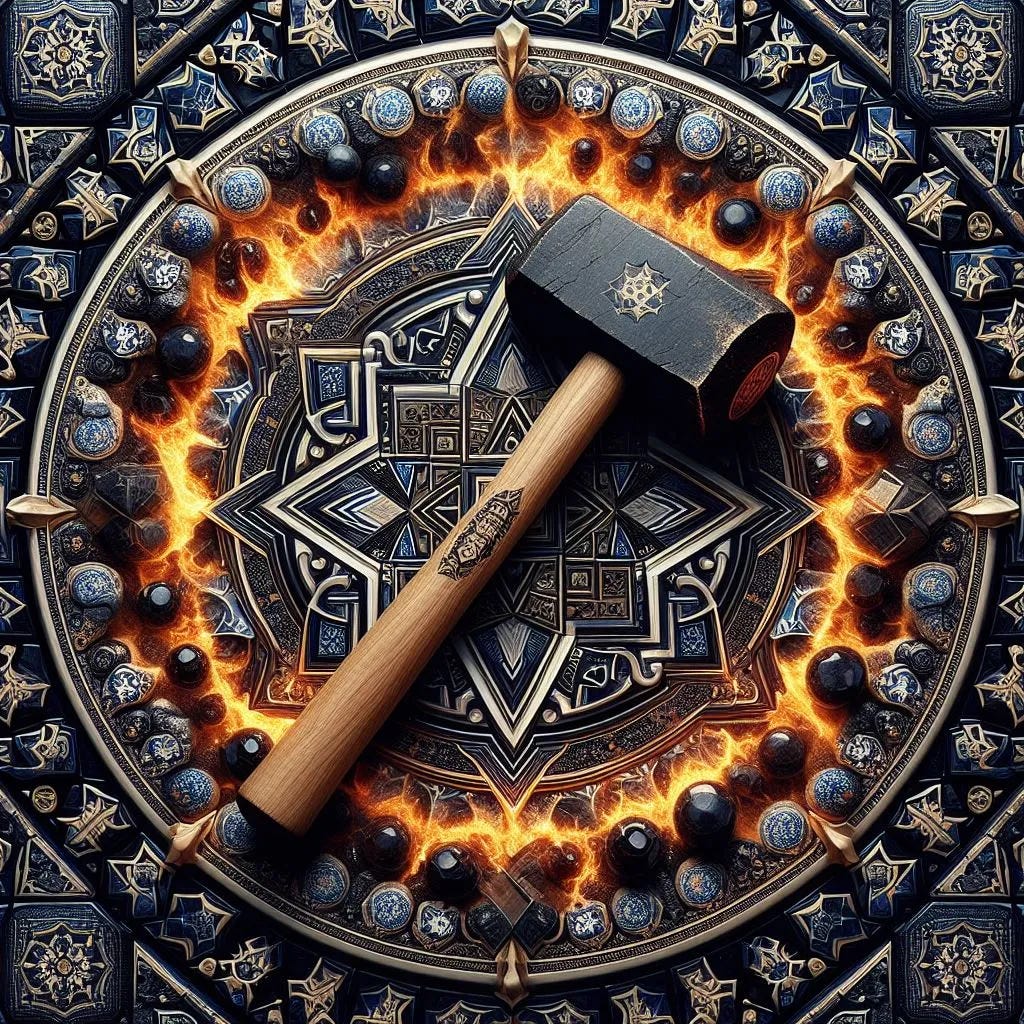
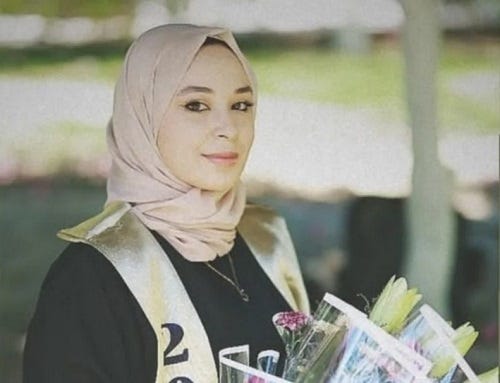








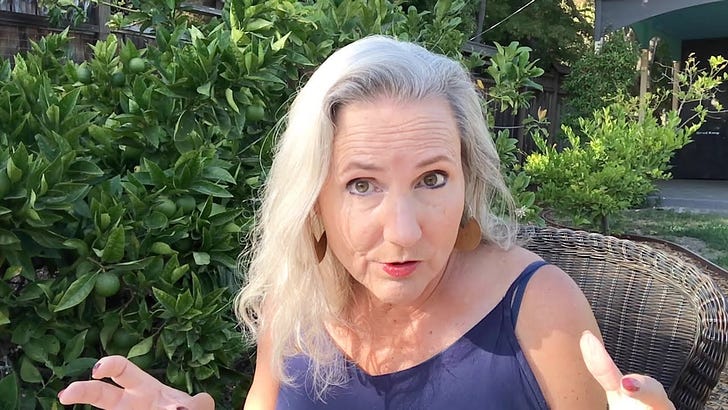
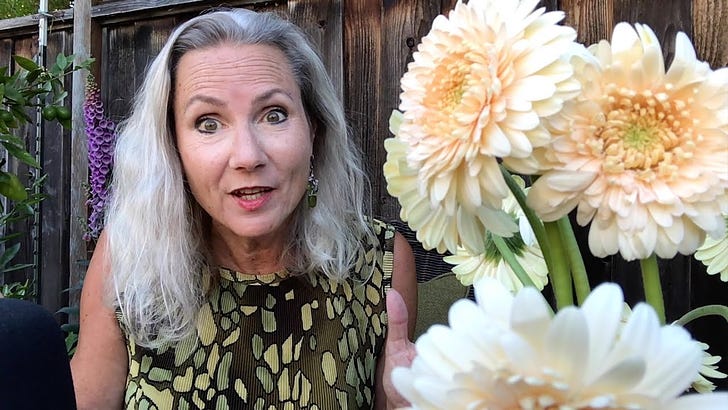
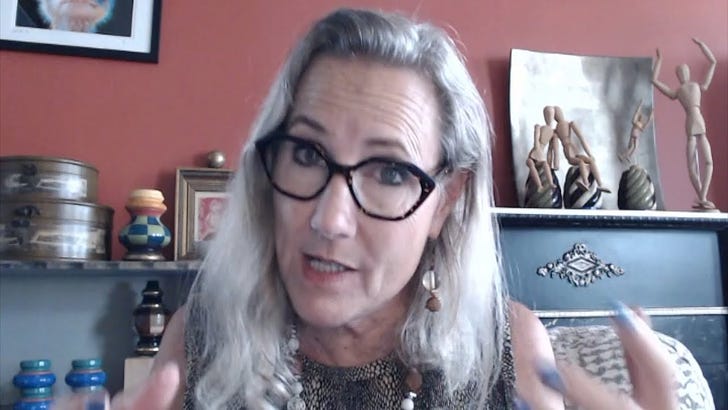
I hope you won't mind this adapted from the YT comment:
You cover many important facets of our lives here, Tereza.
The precarious condition of our housing caused by the corrupt debt based central banking, making housing impossibly unaffordable. (I don't know how anyone is able to move to California now)
The story of Jeeji, is so heart wrenching; what you describe, people who are losing their loved ones in Gaza have gotten scars of anguish cauterized by tears that can never be any less than just under the surface and never completely gone. Tragedies like what's happening in Gaza must be stopped.
I can relate to loss but it wasn't violent. Someone I loved as friend passed away; she and I knew each other for over 25 years, we had not been in touch for awhile, then out of the blue she called and we got all caught up, exchanged pictures of family. This was in 2020, she said she would be in touch. Just last year, I got this nagging feeling about her and I checked her name --- she had passed away in 2022.
All we have in this life is each other and love itself in it's many forms. In English we only have one word for love; in Sanskrit there is a word for each type of love experienced.
Your dream about a revolution is a really great example of how everyone can come together, to nullify the Tyrants of the Technocracy, blue shower cap, mask and all. Although, Internet is great for while it is working, it's great for a starting point for creating our tribe; we need to be able to come together without the "dependence on" the internet and other automated technology. To talk with each other, share our ideas, compare solutions, react to the issues and hold compassion for one another as a community.
Feminized statistics has some of the best wisdom, I love your feminine perspective. I am looking forward to your SOTO address, it sounds interesting. ;-)
Stunning...such a gorgeous post - walking us through the gamut of emotions...weaving such profound tapestries of life and love...💖💞 TY